Ghana Month: Iconic Sports Personalities who put Ghana on the map after independence
The dream of every talent in sports is to represent his or her country at various sports events but the biggest honour is to come back with the ultimate prize or medal.
Ghana can boast of lots of talents when it comes to sports but only a few names have made the nation proud with laurels after gaining independence in 1957.
These laurels won in sports have projected the country to be regarded as one of the best sporting nations on the African continent even though recent performances can place doubt on that.
Out of the many sporting disciplines in the world, Ghana has achieved a lot in football, Track and Field, and boxing.
TGR Sports brings you the top 10 iconic sports personalities since independence.
1. Charles K. Gyamfi
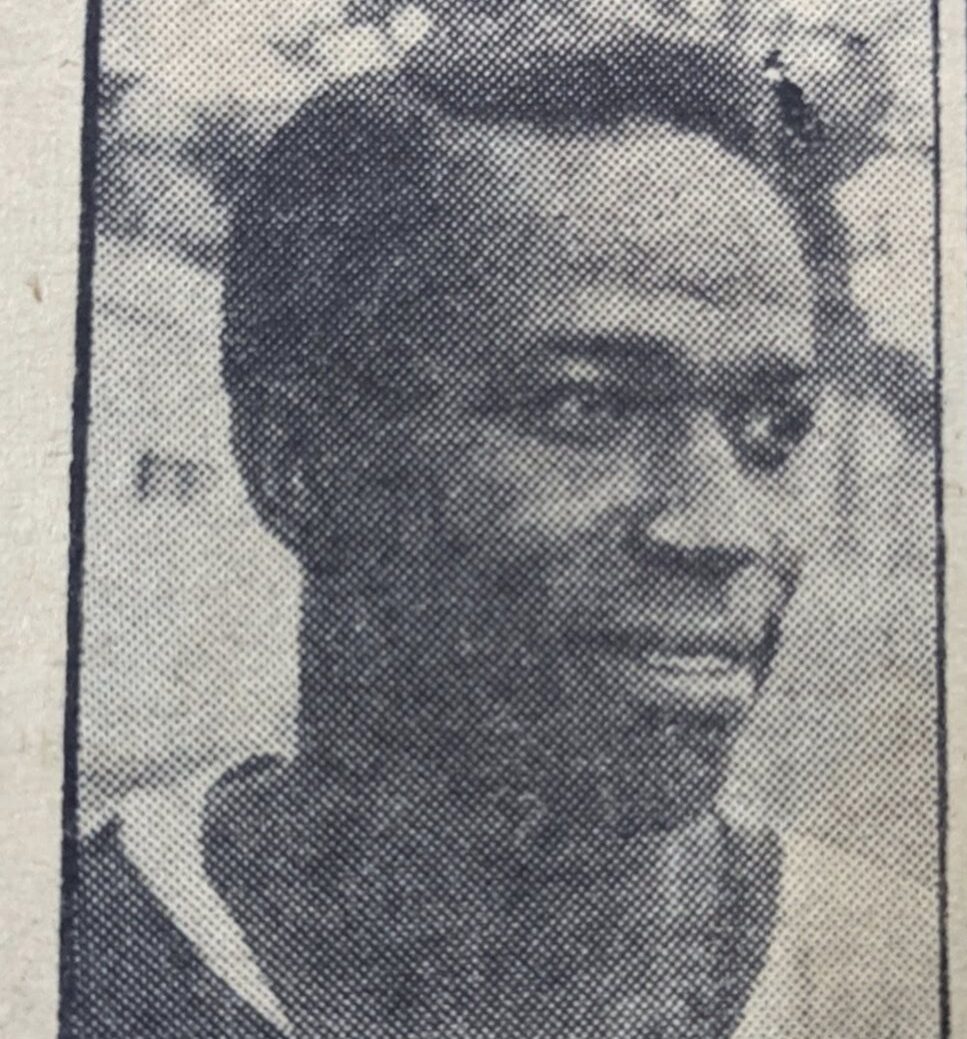
Gyamfi’s playing career was between 1948 and 1961 when he played for home-based clubs, most notably for Asante Kotoko and Hearts of Oak, with whom he was crowned national champion in 1958 and 1960.
In 1960, he became a pioneer in African football by establishing himself as the first player from the continent to play for a German club, Fortuna Düsseldorf, where he spent just one season before retiring from playing in 1961.
Gyamfi after retiring became coach of the Black Stars of Ghana from 1963 to 1965, where he won the 1963 and 1965 African Cup of Nations and again won the 1982 African Cup of Nations when he returned to coach the team for that tournament.
Conquering the African continent on three occasions, he established a record as the most successful coach at the African Cup of Nations, a record which was equaled by Egypt’s Hassan Shehata who 2006, 2008, and 2010 titles.
Following his successes, he managed an African team at the 1972 Independence Cup in Brazil, known as the African Selection, which was a team of African players of different nationalities, but they finished third in Group 1 of the preliminary round.
Charles also coached clubs in Ghana and Kenya, but without the same fortune and a national team (Somalia U21). He was awarded the Confederation of African Football’s ‘African Legend’ trophy posthumously in 2015.
He died on September 2, 2015.
2. David Kotei Poison
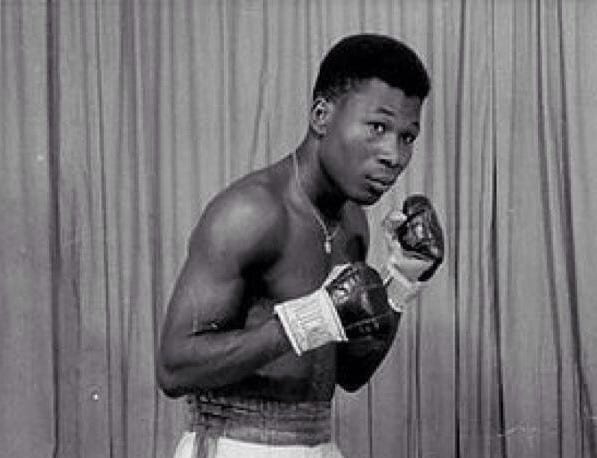
Ghana after independence had produced crafty boxers but failed to annex the world title until David Kotei, popularly known as DK Poison defied all odds by becoming the first Ghanaian professional boxer to win the world title.
He defeated Rubén Olivares on September 20, 1975, to win the WBC world featherweight belt.
His first professional bout was on 5 February 1966 in Accra when he outpointed his opponent over six rounds and in the same year became the national featherweight champion.
D.K Poison won the African featherweight title on 2 February 1974 when he knocked out Tahar Ben Hassen in the first round of a scheduled 15-round fight in Tunis, Tunisia, and before that year could end he was already got the Commonwealth featherweight title with a technical knockout over an opponent Evans Armstrong, a British boxer who he knockout in round 10 of a scheduled 15 rounds bout.
This victory gave him an opportunity to go for the World Boxing Council version of the world title and on 20 September 1975, in the United States, he defeated Rubén Olivares by split points decision after 15 rounds to hand Ghana its first world boxing title. He relinquished the African and Commonwealth titles following this victory.
He however lost the title in his third defense on 6 November 1976 by a unanimous points decision to Danny “Little Red” Lopez in a fierce fight in Accra, Ghana.
His professional record was 48 fights, W- 40, KO -24, and 1 draw.
3. Osei Kofi
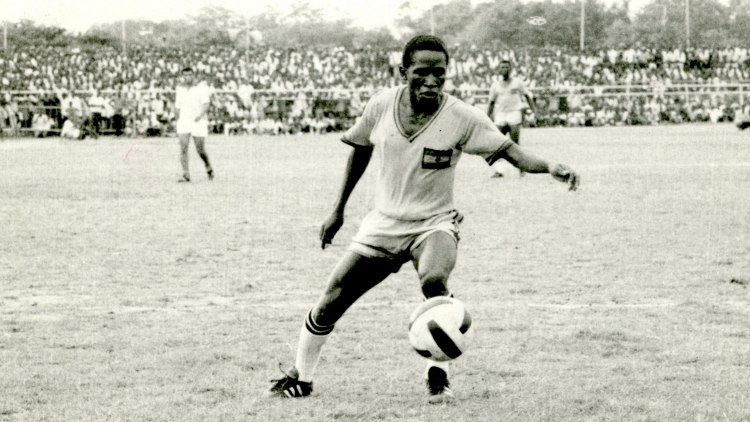
Osei Kofi was born on 3 June 1940 and played football for local club giants Asante Kotoko S.C. and was also part of the Ghana national football team, the Black stars.
He was called the ‘wizard dribbler’ because of his ball dribbling skills and made name for himself in the 60s winning two Africa Cup of Nations in 1965 and 1968.
He was a joint top scorer in the 1965 Africa Cup of Nations tournament held in Tunis, Tunisia leading to Ghana winning the tournament for a second time. He was the joint top goalscorer in the 1965 Africa Cup of Nations and he was the third-highest scorer in the 1968 Africa Cup of Nations.
Osei Kofi spent his whole career at Asante Kotoko SC and won 1964, 1965, and 1967 premier league titles with the club.
He is said to have turned down a lucrative move to Europe in his prime.
4. Azumah Nelson
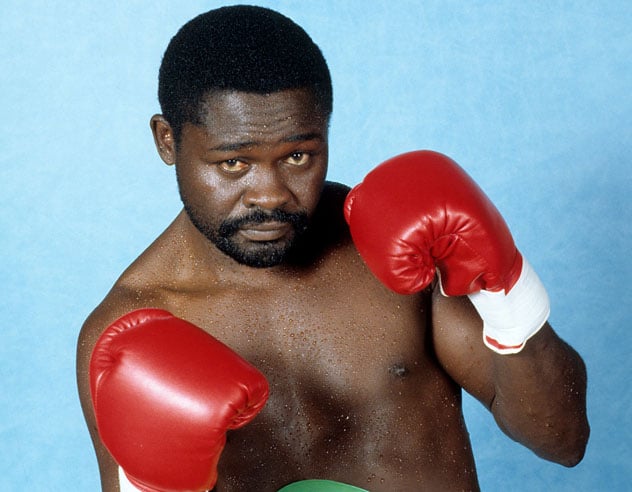
Azumah Nelson (The Professor) was born in Accra, Ghana on July 19, 1958, and made his professional boxing debut at the age of 21 on December 1, 1979.
Nelson became the second Ghanaian boxer to win a world title and the maiden diadem was clinched on December 8, 1984, when he knocked out Wilfredo Gómez in round 11 of a scheduled 12-round bout.
Before the world victory, he had won gold medals for the nation at the All-Africa Games and Commonwealth Games.
Like many champions, he rose from humble beginnings and suffered tragedy along the way, but he won and remained a world champion at featherweight and super featherweight for eleven years. Very few champions have carried such a burden of expectation, and Azumah delivered success at a time when his country needed a hero.
His professional record was 46 fights, W- 37, KO -27, and 2 draws.
On June 13, 2004, he was inducted into the International Boxing Hall of Fame as the greatest African boxer of all time.
5. Abedi Ayew Pele
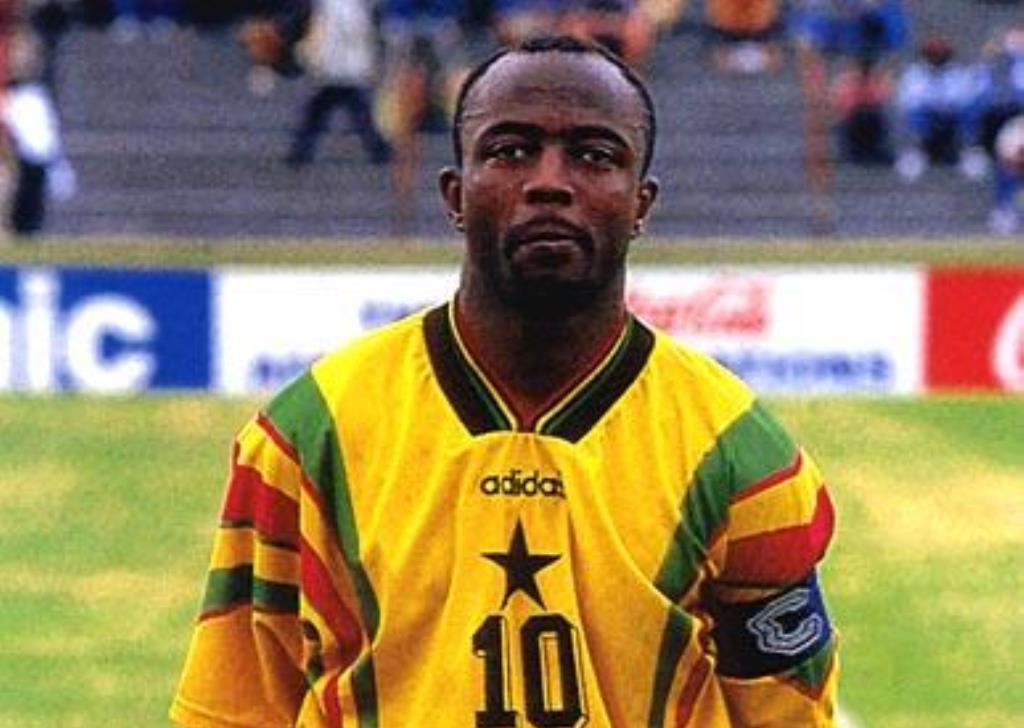
Abedi is regarded as one of the greatest Ghanaian footballers.
During his active days, he was one of the most skillful footballers in the world and was part of Ghana’s team that won the AFCON in 1982 in Libya, which was his debut for the national team.
He went ahead to become the player with the most appearances at the African Cup of Nations, competing at the tournament for 16 years, his last appearance was in the 1998 edition in Burkina Faso.
His performance in the 1992 African Cup of Nations, for which he was voted the player of the tournament, was particularly notable, as he scored in three successive rounds to help Ghana reach the final, but picked up a yellow card in the semi-final against Nigeria that meant he was suspended for the final; Ghana eventually lost an opportunity to claim its 5th title with defeat to Ivory Coast on penalties. His performance earned him the added nickname of “The African Maradona”.
He won the Africa Footballer of the Year three times (1991, 1992, ad 1993). He Abedi has capped 73 times for Ghana, scoring 33 goals in the process.
6. Aziz Zakari
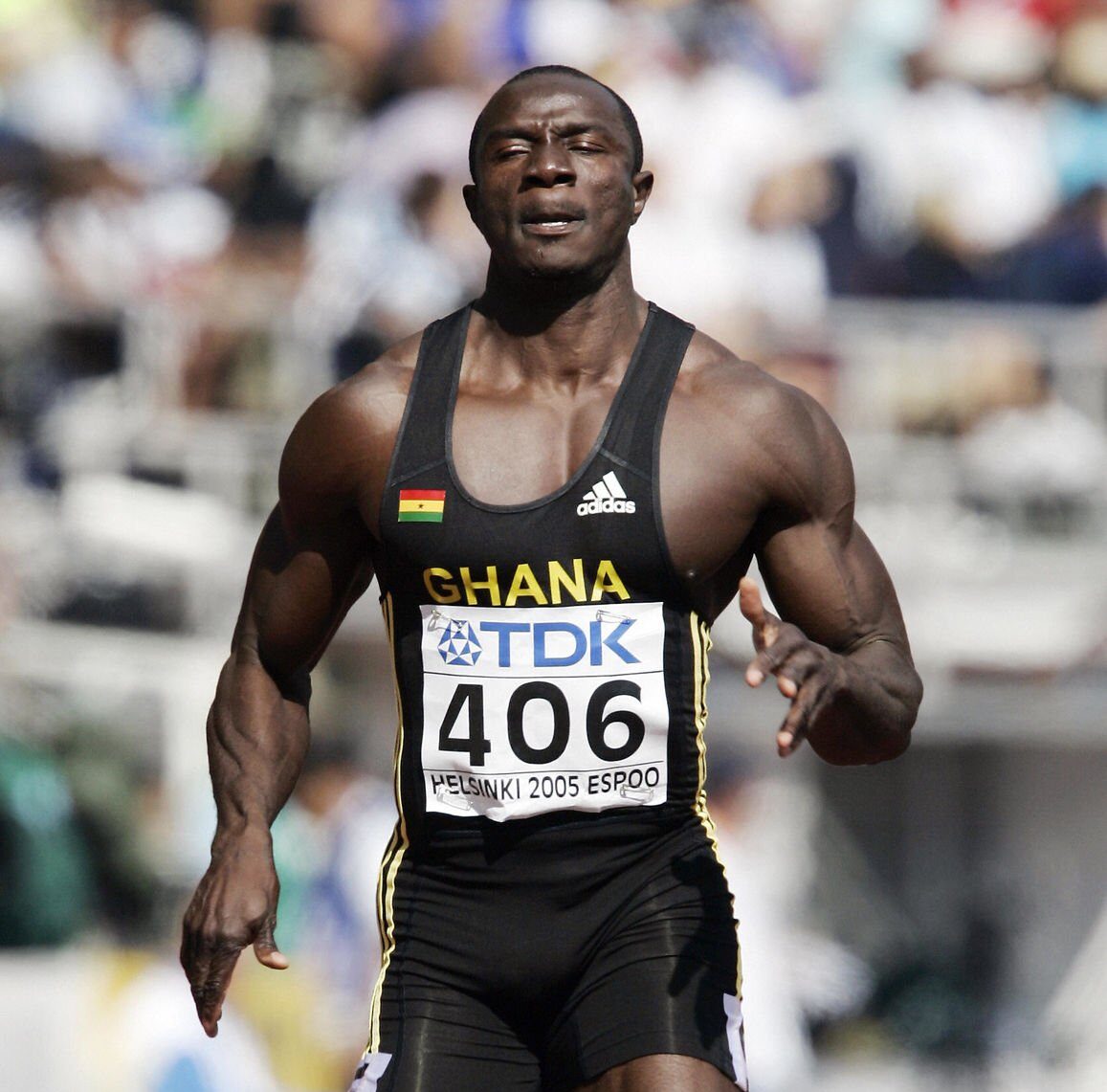
Born on September 2, 1976, Aziz Zakari became one of Ghana’s most celebrated athletes. His specialty was 100 meters race.
He is described as one of the fastest men in Africa and represented the country at various international tournaments.
A force to reckon with, he dominated track and field events held across the continent in the early 2000’s and won Ghana a total of 12 medals, 4 each for gold, silver, and bronze.
Zakari also represented Ghana at the 2000, 2004, and 2008 Summer Olympic Games.
In the 2000 Summer Olympics, he made it to the final of the 100 meters but failed to finish after becoming injured at about the 35m mark.
Also participating in the 2004 Summer Olympics, he clocked second place in his 100 meters heat, thus making it through to the second round. Heading into the second round, he was victorious in a tough sprint, before achieving qualification from his semi-final.
This good form was not able to continue, as he failed to finish in the final. The event was renowned as possibly the fastest collective 100-meter race in history, where six of the seven finishing athletes completed the race in a space of ten seconds or less.
7. Rose Hart
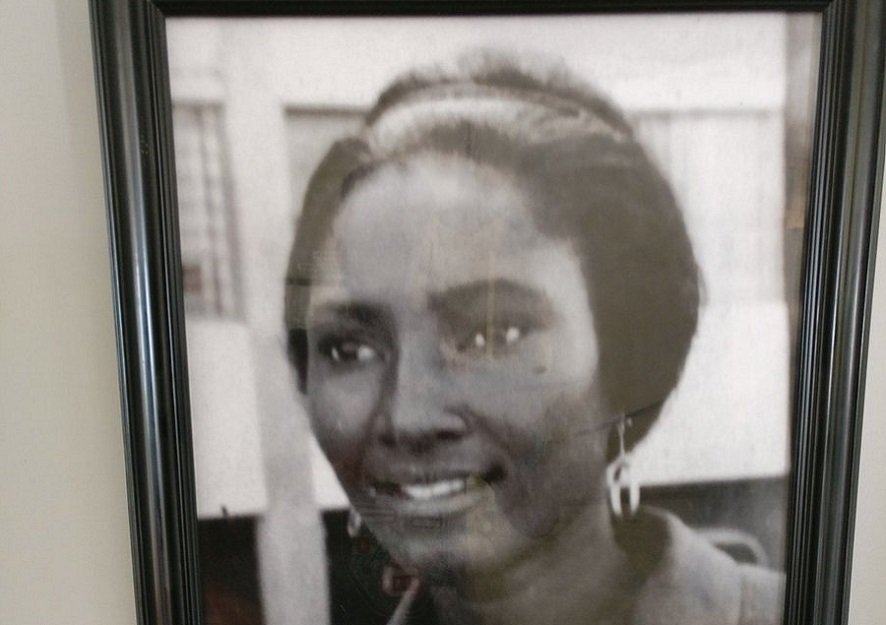
Born January 9, 1942, Rose was a professionally trained track and field athlete who dominated the track and field with her speciality in hurdling, sprints and the discus throw.
She represented Ghana at the 1964 Olympic Games in Tokyo and competed in hurdling, sprint and discus throw categories, but even though she didn’t earn any medals at the game, however, her presence at the sporting competition laid down the foundation for black African women athletes after the independence.
Hart’s appearance and performance at the Olympics prepared her for continental dominance as she won two gold medals at the All-African Games in 1965 and 1973 respectively.
After her retirement from the game, she worked at the National Sports Council as a coach and sports administrator before her demise in 2012.
8. Emmanuel Tuffour
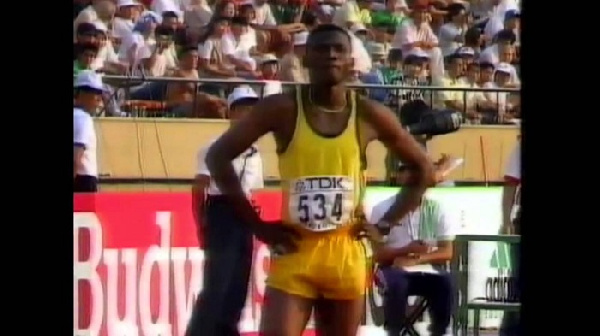
Tuffour put Ghana in the global space when he represented the country at the 1993 World Championships and placed seventh at the finals, this was an improvement on his performance in the 1992 Olympics which failed to qualify for the final by 0.01 second.
However, he won two silver medals in the 100 meters and 200 meters at the 1995 All-African Games in Harare, Zimbabwe.
Tuffour was part of the 4 x 100 relay team that held the national record with 38,12 seconds finish they achieved at the 1997 World Championships in Athens, this record the team held until last year when the current relay team of Sean Safo-Antwi Benjamin Azamati Joseph Oduro Manu Joseph Amoah broke it.
He managed to win 9 medals for the country as an athlete before he retired.
9. Mohammed Polo

Polo popularly known as the “Dribbling Magician”, made a big impact in football in his playing days and was arguably rated the most technically gifted player ever to emerge from Ghana.
Polo was invited into the Black Stars at the age of 17 years.
He was in the Ghana squad that won the 1978 African Cup of Nations hosted by Ghana. He was a left winger and played for Hearts of Oak in the Ghana premier league.
10. Ohene Djan
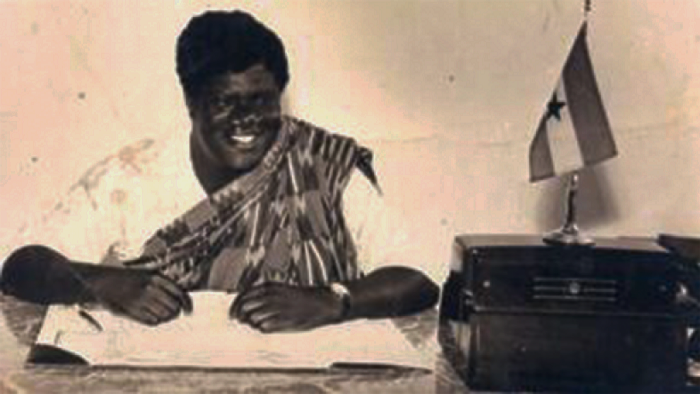
Ohene Djan may not be part of the playing body of any sports but he is mentioned due to his immense contribution to the field as an administrator.
Djan’s journey to the helm of sports affairs in Ghana began in September 1957, when he was elected General Secretary of the Football Association by the clubs and the Ghana Amateur Football Association (GAFA).
He was later appointed Ghana’s first Minister of Sports by Osagyefo Dr. Kwame Nkrumah and later rose to become the vice-president of the Confederation of African Football.
Ohene Djan founded the senior national team and had a good reputation across Africa and that helped Ghana gain the hosting rights for the 1963 African Cup of Nations which the Black Stars won and then went on to defend the trophy in Tunisia in 1965 under his leadership.
He also suggested to Nkrumah to donate a trophy for a tournament that is now known as the CAF Champions League.
As a memorial, the Accra Sports Stadium has been named after him.
Djan died on 26 March 1987.


